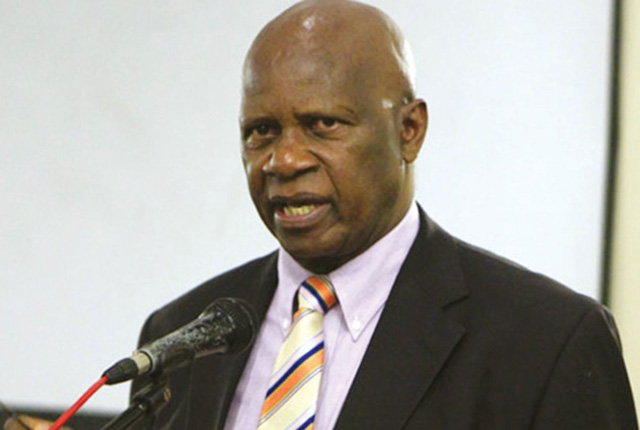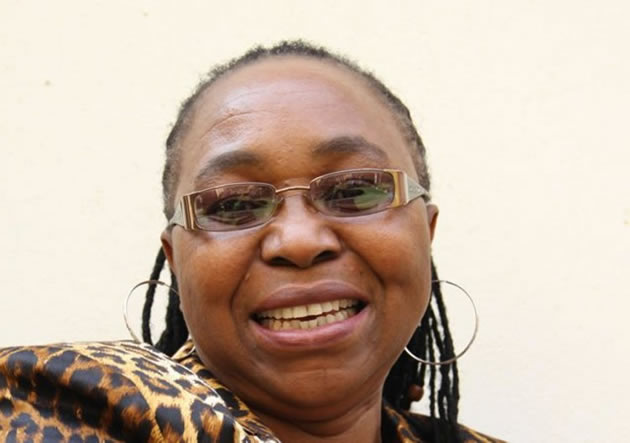Lifeline for school dropouts

Ruth Butaumocho Gender Editor
Kelvin Satimburwa (15) from Sagambe, Honde Valley, sadly watched his peers board the only lorry in the neighbourhood that ferried them to school, 20 kilometres away.
As he watched them engaging in animated conversation, while trying to maintain their balance in the ramshackle, Kevin could not help but marvel at their spotlessly clean and crisp white shirts.
He continued gazing in the direction the lorry had taken, long after it had disappeared from the village.
Having missed three years of schooling after his widowed mother failed to pay his fees, Kelvin had lost all hope of ever going back to school.
Attempts by his mother to convince the headmaster to allow him to work at the school and enable him to pay the fees were futile.
“I do not want to die herding cattle in this village,” he swore under his breath as he joined his mother in the field.
Kelvin is among thousands of school dropouts who could soon be thrown a lifeline following the launch of a campaign dubbed “Every Child in School Campaign” calling on the Government to ensure every child has access to education.
The campaign comes against the backdrop of increasing number of children, particularly girls who are dropping out of school for failing to pay fees.
According to latest statistics from the Ministry of Primary and Secondary Education, more than 13 000 primary and secondary school pupils dropped out of school in 2013 owing to early marriages and lack of school fees.
A 2013 Education Management System report released by the ministry late last year said, the number of dropouts at primary education level increased from 23 percent in 2012 to 43 percent in 2013.
The ministry revealed that about 52 percent of secondary school dropouts were females, adding that 40 percent of all primary school pupils who failed to proceed with their education were also females.
“At secondary level 2 289 dropped out of school comprising 1 063 females and 1 226 males because of school fees, while 1 191 failed to continue because of marriages, with 801 of them being females and 390 males. Absconded has 901, while pregnancy has a total of 856 drop-outs,” the ministry said.
“At primary level, 2 784 dropped out because of school fees consisting of 1 646 males and 1 138 females followed by absconded, which consists of 591 males and 440 females. Death and unknown reasons have 525 and 625 respectively.”
Responding to Parliamentarians on the number of school drop outs in Zimbabwe recently, Finance Minister Cde Patrick Chinamasa said 50 percent of children in districts surveyed by the Zimbabwe Vulnerability Assessment Committee, Zimvac, in 2017, were not attending school due to financial constraints with the national non-attendance standing at 34 percent.
Even the Basic Education Assistance Module that was set up to mitigate the problem has not been able to assist all the children in need of fees.
According to the ministry of Labour and Social Services, Beam is funding school fees for around 415 900 against an estimated 1 045 480 in need of education support.
However problems of school drop outs could soon be a thing of the past after the President Mnangagwa clearly pointed out in his inauguration speech that all activities that the national security institutions aim to achieve in the new trajectory must be focused on overall human security from disease, hunger, unemployment, illiteracy and extreme poverty.
Premised on this, about 10 civic organisations came together in December last year and launched a campaign in Zimbabwe to ensure that every primary school student should have access to education.
In their petition, the civic organisations called on the education ministry to allow hundreds of thousands of marginalised who are out of primary school to be readmitted.
“We are asking the Minister of Education to release a circular to this effect immediately so that those children who are out of primary school because they could not pay the required school fees can be given places in public schools and not be discriminated against because they cannot pay,” read part of the petition.
The petition that was signed by several civic organizations among them Women’s Coalition of Zimbabwe, Justice for Children’s Trust, Evangelical Fellowship of Zimbabwe and Tag a Life Zimbabwe also called on the Government to ensure that public schools enroll children for primary school, regardless of their financial status.
In an interview, a spokesperson for the campaign Ms Nyari Mashayamombe said it was important for the nation to understand that education was a fundamental and basic right in Zimbabwe, hence the decision to initiate the campaign.
“The Every Child in School initiative understands that education is a compulsory right in Zimbabwe and every child has the right to attain basic education according to Zimbabwe’s constitution section 75”
“It therefore remains a fundamental and un-negotiated right for all these children who are out of school to be given a chance at education, just like those who are within schools are protected by existing policies,” she said.
Even Primary and Secondary Education Cde Paul Mavhima has since acknowledged that turning children away from school for non-payment will result in an increase in school dropouts.
“We are bound by our Constitution not to turn away students over the issue of fees. I am going to direct my permanent secretary to communicate to our structures on the issue of turning away students over fees, we are receiving many complaints over the issue,” he told Parliament this week.
Sadly, the majority of girls who are dropping out of school end up getting married early, exacerbating poverty levels within their families, while compromising their health.
The high school dropout problem can become a national crisis because it impacts not only on the affected individuals and their families, but can become economic and social costs that local communities have to deal with.
In the long run, the nation and communities will fail to get productive workers and will incur higher costs associated with incarceration, health care and other social services that would be naturally overburdened by an unproductive and illiterate community.
School dropouts usually experience a wide range of job market, earnings, social and income problems that affect their ability to transition to productive career and stable family life.
As the world moves towards an increasingly global economy, individuals and nations are discovering that higher levels of education are critical to the ability to compete and thrive.
In fact, about 90 percent of the fastest growing jobs will require some post-secondary education.
Zimbabwe’s education system, for long considered the best in Africa, has taken a knock in recent years, chiefly owing to economic challenges.
With the birth of the new political dispensation, educationists are already optimistic that the waning fortune within the education sector could be rejuvenated.
Feedback: [email protected]











Comments